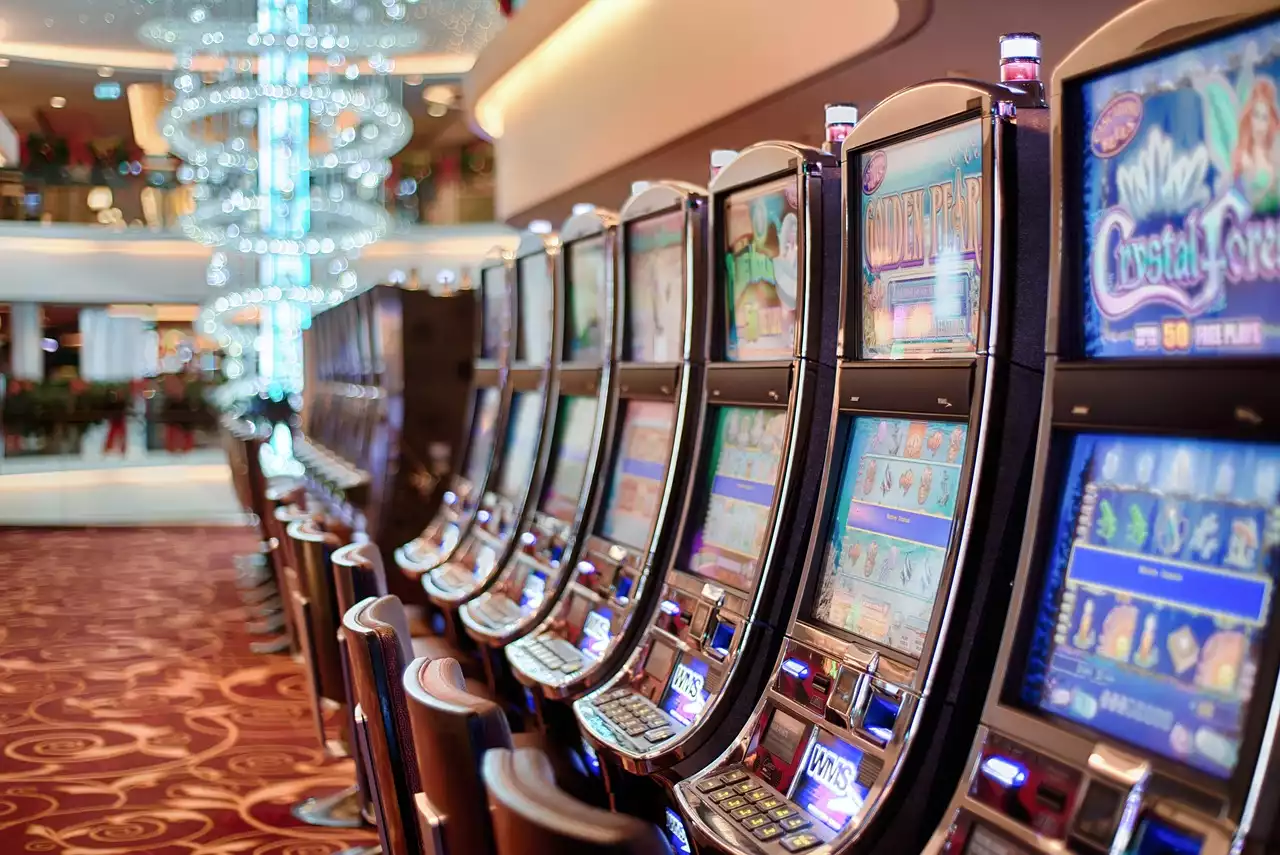Online Casinos vs. Traditional Gambling Establishments
Online casinos and traditional gambling establishments represent two distinct approaches to the gambling experience. Online casinos have gained immense popularity due to their convenience and accessibility. Players can indulge in their favorite games from the comfort of their homes, eliminating the need for travel and allowing for 24/7 access. The vast array of games available at online casinos, ranging from slots to live dealer games, caters to diverse preferences, providing an unmatched level of entertainment at the click of a button.
Conversely, traditional gambling establishments offer a sensory experience that cannot be replicated in the digital realm. The palpable excitement of a bustling casino floor, the clinking of chips, and the interaction with fellow gamblers create an ambiance that appeals to many. The social aspect of traditional gambling establishments, including live events and entertainment, contributes to the allure of these physical spaces, offering an immersive experience that goes beyond the games themselves.
The Pros of Online Casinos
Online casinos present several distinct advantages that contribute to their widespread appeal. Firstly, the convenience factor cannot be overstated. Players can access their favorite games at any time and from any location, eliminating the need to travel to a physical establishment. Additionally, online casinos often offer a wider selection of games than their brick-and-mortar counterparts, catering to a diverse audience with varying preferences. The ability to access virtual casinos from desktops, laptops, or mobile devices further enhances their accessibility, allowing players to indulge in gaming experiences on their terms.
Moreover, online casinos frequently provide enticing bonuses and promotions, incentivizing players with welcome offers, free spins, and loyalty rewards. These promotional strategies enhance the overall gaming experience and can significantly boost players' bankrolls. The seamless integration of secure payment methods and swift transactions adds to the appeal of online casinos, ensuring a hassle-free experience for depositing and withdrawing funds. Overall, the convenience, game variety, bonuses, and user-friendly interfaces make online casinos an attractive option for many gambling enthusiasts.
The Cons of Online Casinos
Despite their numerous advantages, online casinos also present certain drawbacks that warrant consideration. One of the primary concerns revolves around the potential for addictive behavior and irresponsible gambling. The easy accessibility of online casinos, coupled with the absence of physical oversight, may lead some individuals to engage in excessive gaming, potentially leading to financial and emotional distress. Additionally, the virtual nature of online casinos may detract from the social aspect of gambling, depriving players of the interpersonal interactions and ambiance found in traditional establishments.
Another notable drawback of online casinos pertains to the trustworthiness and credibility of the platforms. While reputable online casinos adhere to strict regulatory standards and employ advanced security measures, the proliferation of unregulated or fraudulent operators poses a risk to players. Issues such as delayed payments, unfair gaming practices, and inadequate customer support can tarnish the reputation of online casinos and erode players' trust. As such, discerning players must exercise caution and conduct thorough research before engaging with online gambling platforms.
The Pros of Traditional Gambling Establishments
Traditional gambling establishments encompass a rich tapestry of experiences that resonate with a broad spectrum of gamblers. The palpable energy and ambiance of physical casinos create an immersive environment that cannot be replicated in the digital realm. The sensory stimulation, including the sights, sounds, and interactions, contributes to a holistic gambling experience that transcends the games themselves. Moreover, the social aspect of traditional gambling establishments fosters camaraderie among players, as well as the opportunity to partake in live events, entertainment, and dining experiences.
Furthermore, the credibility and trust associated with reputable brick-and-mortar casinos instill a sense of security and confidence among patrons. Established gambling establishments adhere to stringent regulatory requirements, ensuring fair play, secure transactions, and responsible gaming practices. The physical presence of regulatory bodies and oversight agencies within traditional establishments contributes to a transparent and accountable gaming environment, bolstering players' trust in the integrity of the gaming experience.
The Cons of Traditional Gambling Establishments
Despite the allure of traditional gambling establishments, certain limitations and challenges are inherent to their operational model. One notable drawback pertains to the geographical constraints associated with physical casinos. For individuals residing in remote locations or areas with limited access to gambling establishments, the logistical barriers may hinder their ability to partake in casino gaming. Additionally, the fixed operating hours of traditional establishments impose restrictions on when players can engage in gambling activities, contrasting with the 24/7 accessibility offered by online casinos.
Another consideration is the higher associated costs of visiting traditional gambling establishments, encompassing expenses such as travel, accommodation, and dining. These supplementary costs can significantly impact a player's overall gambling budget, potentially deterring individuals from frequenting brick-and-mortar casinos. Moreover, the lack of anonymity in physical casinos may dissuade some players who prefer the privacy and discretion afforded by online gambling platforms. The potential for social pressure and judgment in traditional gambling environments may influence certain individuals to seek alternative avenues for their gaming pursuits.
The Future of Gambling Regulation
The ongoing evolution of the gambling landscape necessitates a proactive approach to regulatory frameworks and oversight. As online casinos continue to gain prominence and traditional gambling establishments undergo transformation, regulatory bodies play a pivotal role in safeguarding the interests of both players and industry stakeholders. The implementation of robust licensing requirements, compliance standards, and consumer protection measures is imperative to ensure the integrity and transparency of gambling operations.
Furthermore, the convergence of technology and gambling necessitates a nuanced approach to regulatory adaptation. Emerging trends such as virtual reality (VR) casinos, cryptocurrency integration, and enhanced data analytics present novel considerations for regulatory frameworks. Regulators must remain agile and responsive to technological advancements, striking a balance between fostering innovation and safeguarding against potential risks, such as money laundering, underage gambling, and problem gambling behaviors.
Responsible Gambling in Online Casinos and Traditional Establishments
Amidst the dynamic shifts in gambling preferences and modalities, the promotion of responsible gambling practices assumes heightened significance. Both online casinos and traditional gambling establishments bear the responsibility of advocating for responsible gaming behaviors and mitigating the potential harms associated with excessive gambling. Educational initiatives, self-exclusion tools, and support resources for problem gamblers are integral components of responsible gambling efforts, aiming to cultivate a safe and sustainable gambling environment.
Technology and the Future of Gambling
The fusion of technology and gambling continues to redefine the parameters of the gambling experience. Innovations such as mobile gaming, augmented reality (AR) features, and personalized gaming interfaces contribute to an increasingly immersive and tailored gaming experience for players. The utilization of artificial intelligence (AI) and machine learning algorithms enhances the customization of gaming content, predictive analytics for player preferences, and the detection of anomalous gambling patterns, thereby advancing the efficacy of responsible gambling measures.
Furthermore, the advent of blockchain technology has garnered attention within the gambling industry, offering transparent and tamper-resistant solutions for issues such as provably fair gaming, secure transactions, and the decentralization of gambling platforms. The integration of blockchain in gambling ecosystems holds the potential to engender greater trust and fairness among players, while also streamlining operational processes for operators. As the technological landscape continues to evolve, the symbiotic relationship between technology and gambling will undoubtedly shape the future of the industry.
The Impact of Online Gambling on Traditional Establishments
The ascent of online gambling has engendered a paradigm shift in the gambling industry, prompting traditional establishments to adapt and innovate in response to evolving consumer preferences. Traditional casinos have embraced digital transformation by incorporating online platforms, hybrid gaming experiences, and mobile applications to extend their reach and engage with a broader audience. The integration of online components within traditional establishments serves to augment the overall gambling experience, catering to the diverse needs and preferences of modern-day gamblers.
Conversely, the proliferation of online gambling has presented challenges to traditional establishments, compelling them to differentiate their offerings and enhance the experiential value of physical casinos. Emphasizing the social and immersive aspects of in-person gambling, traditional establishments have sought to cultivate a distinct value proposition that transcends the convenience of online casinos. The strategic convergence of digital and physical gambling modalities underscores the dynamic interplay between online and traditional gambling, shaping a hybridized landscape that reflects the evolving demands of contemporary players.
In conclusion, the juxtaposition of online casinos and traditional gambling establishments underscores the multifaceted nature of the gambling industry. While online casinos epitomize convenience, diverse game options, and accessibility, traditional gambling establishments exude an ambiance steeped in history, social interaction, and immersive experiences. The future of gambling hinges on the harmonious coexistence and symbiotic evolution of both platforms, underpinned by robust regulatory frameworks, responsible gambling initiatives, technological innovations, and the strategic adaptation of traditional establishments. As the gambling landscape continues to evolve, the convergence of tradition and innovation will define the contours of the modern gambling experience, offering a dynamic tapestry of opportunities for players and industry stakeholders alike.
# The End
This comprehensive exploration of the future of gambling has illuminated the dynamic interplay between online casinos and traditional gambling establishments, shedding light on the distinctive merits and considerations associated with each platform. As the gambling industry continues to evolve in response to technological advancements and shifting consumer preferences, the coalescence of tradition and innovation will shape a vibrant landscape of gambling experiences for generations to come. Whether you're a fervent advocate of online casinos or a devotee of traditional gambling establishments, the future of gambling promises an amalgam of exhilarating possibilities, underpinned by a collective commitment to responsible gaming, regulatory integrity, and the seamless fusion of digital and physical realms.














